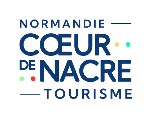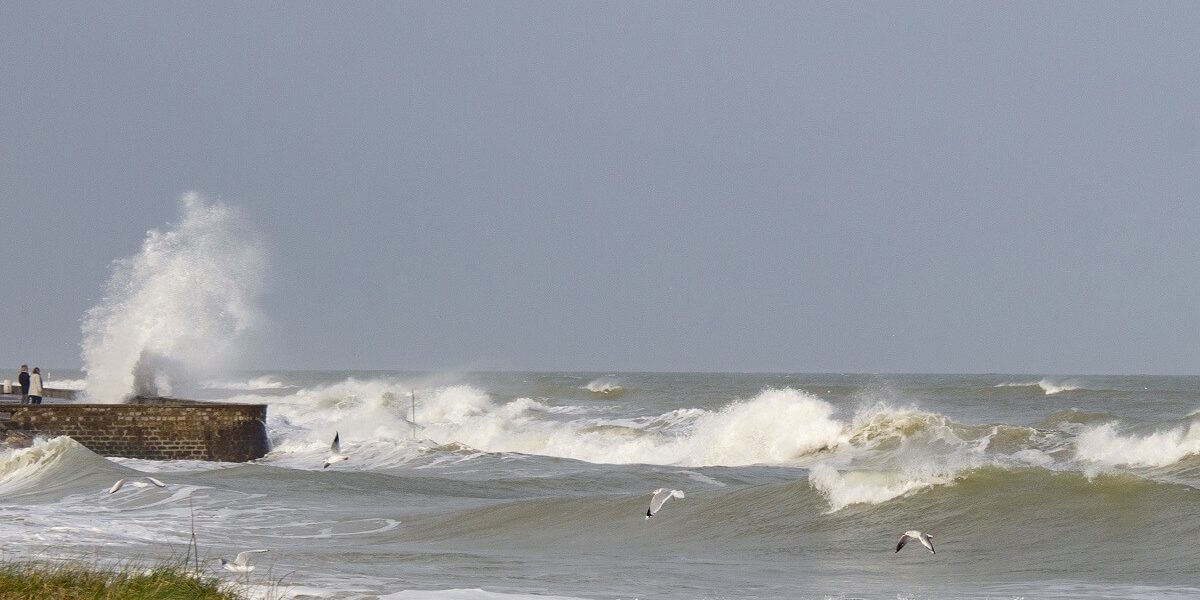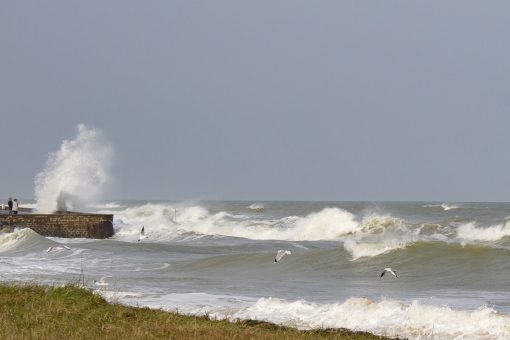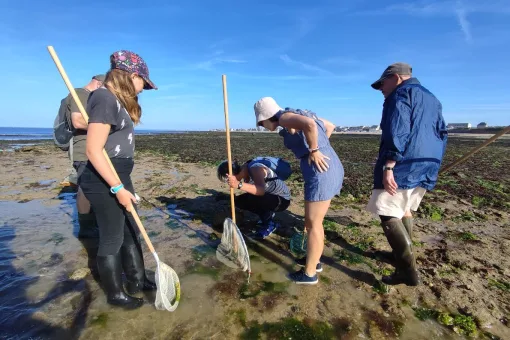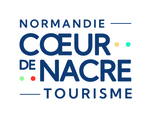The high tides are an exceptional natural phenomenon to discover on the Normandy coast.
The spectacle of the unleashed waves crashing on the seawall is breathtaking.
See you on the Côte de Nacre, from Courseulles-sur-Mer to Ouistreham, for the next high tides.
Explanation of the tidal phenomenon
It’s all very well to talk about high tides, but in concrete terms, how does this phenomenon work?
Our ancestors believed that the gods governed the tides. Scientific work over the centuries has established that this phenomenon is due to the attraction of the moon and the sun on our planet earth.
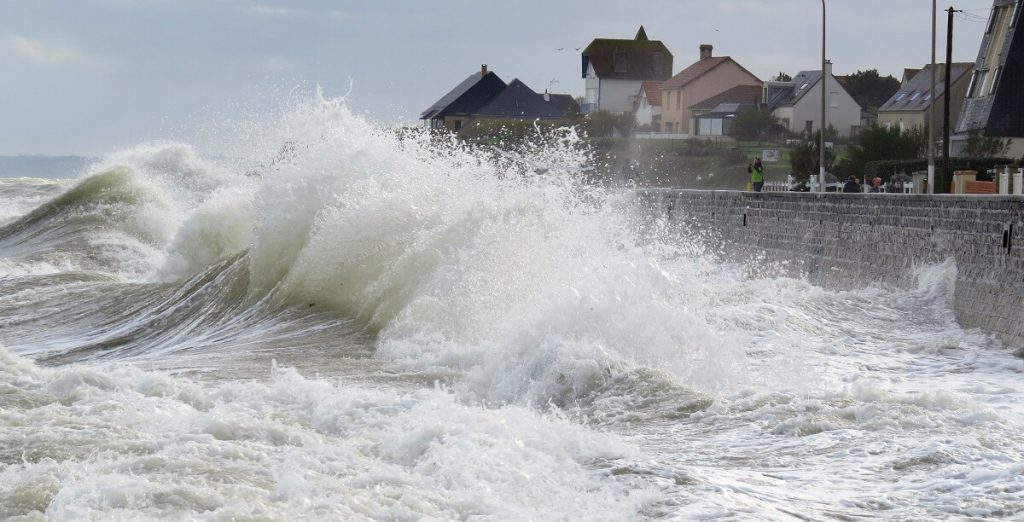
Credit : C. Fleury-CV Bernières
It is the combined effect of universal gravitation and centrifugal force that causes the water to rise or fall.
An impressive show…
A term to remember when talking about tides : tidal range.
What is tidal range ? The tidal range is the difference between the high and low tide levels. It is used to evaluate the amplitude of the tide.
The tidal range is measured by the tidal coefficient. The greater the amplitude, the greater the tide.
We means a large tide from a coefficient of 90.
The sea descends for 6 hours and then remains at slack water for about 30 minutes. Then it rises again for 6 hours.
There are 2 full tides a day : the sea is therefore high twice a day and low twice a day.
The highest tides of the year are called equinoxes. They take place every 6 months, around March and September.
These are tides with coefficients of over 110.
So! Is it clearer for you?
Where to watch the high tides on the Côte de Nacre ?
- from the wooden jetty at Courseulles-sur-Mer,
- from the croisette at Bernières-sur-Mer, at the eastern end of the sea wall,
- from the terrace of one of the restaurants in Saint-Aubin-sur-Mer,
- from the high dyke at Langrune-sur-Mer, next to the first aid post,
- at the foot of the fishermen’s jetty in Luc-sur-Mer.
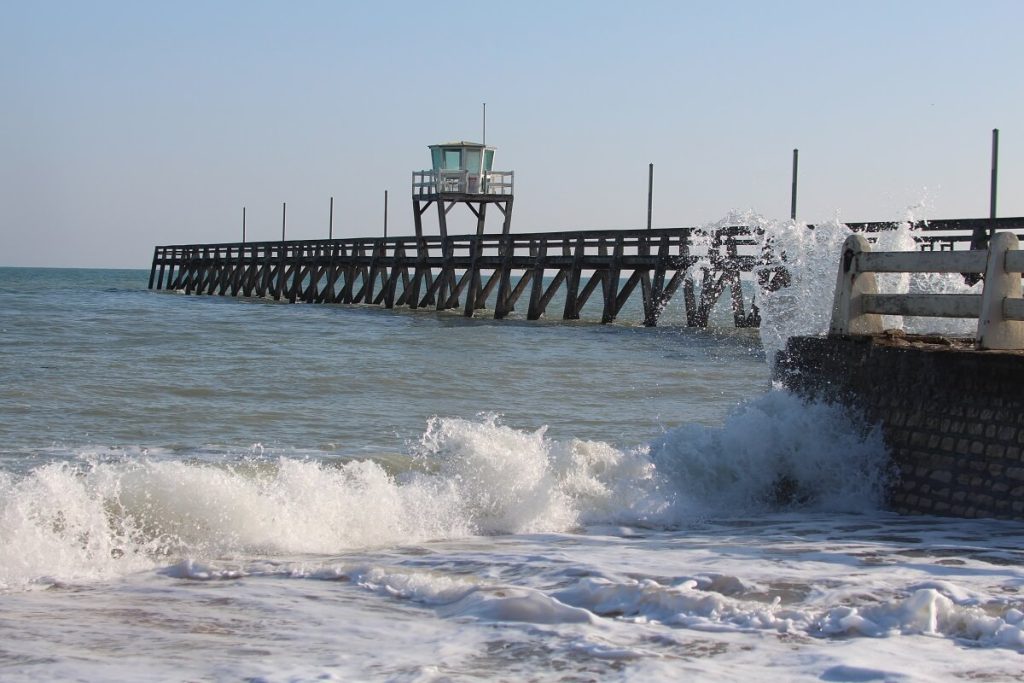
The next high tides on the Côte de Nacre :
| Month | Period | Maximum coefficient |
| January | The 31st | 98 |
| February | from 1st to 3rd/14th to 28th | 99 |
| March | from 1st to 4th/29th to 31st | 114 |
| April | from 1st to 2nd/27th to 30th | 111 |
| May | from 26 to 29 | 96 |
| June | – | – |
| July | – | – |
| August | from 11 to 14/24th to 26th | 95 |
| Septembre 2024 | from 8 to 12/22 to 23 | 106 |
| October 2024 | from 6 to 11 | 109 |
| November 2024 | from 4 to 8 | 106 |
| December 2024 | from 4 to 7 | 98 |
With its 130 kilometres of coastline and shallow waters, Calvados is a dream destination for shellfish fishing !
Where to fish for shellfish in Calvados ?
The Côte de Nacre, located between Courseulles-sur-Mer and Ouistreham, is a particularly popular spot for shellfishing.
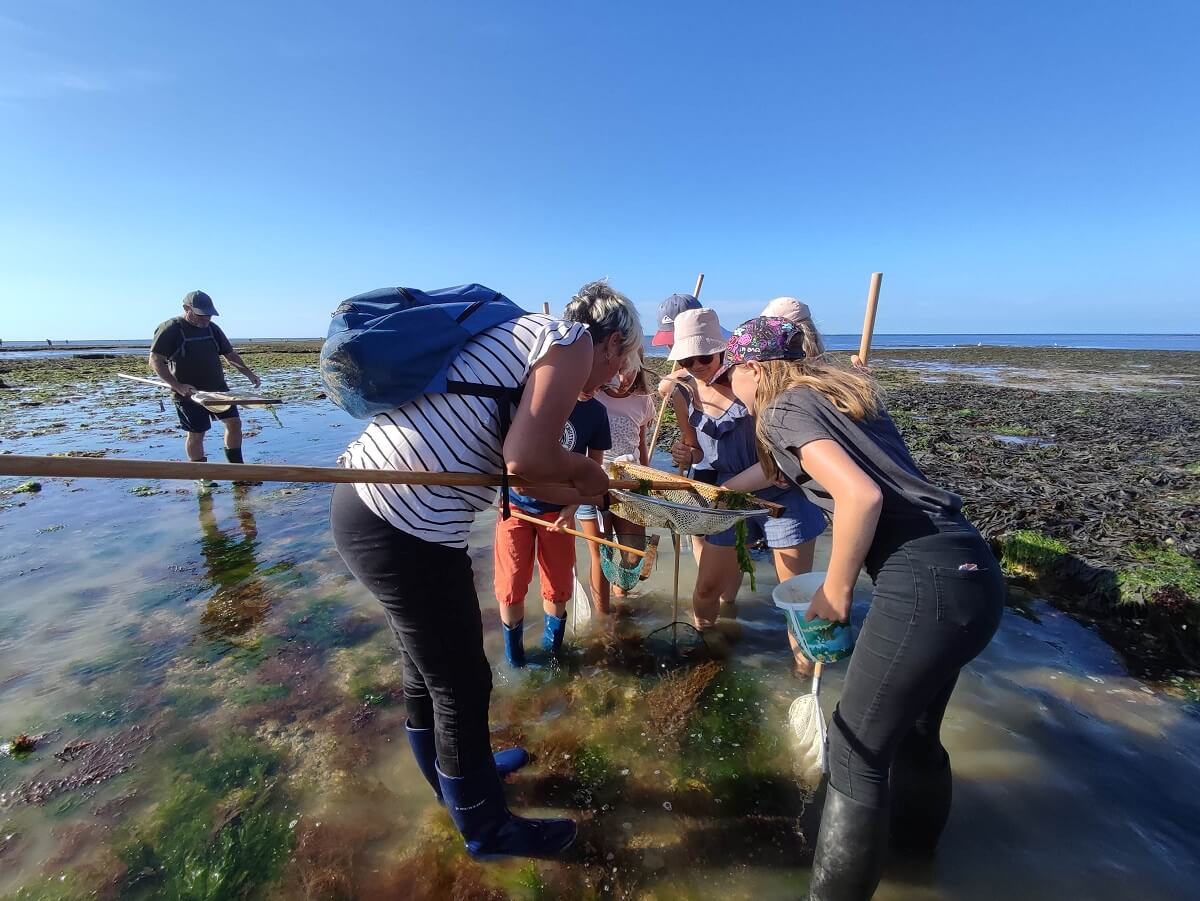
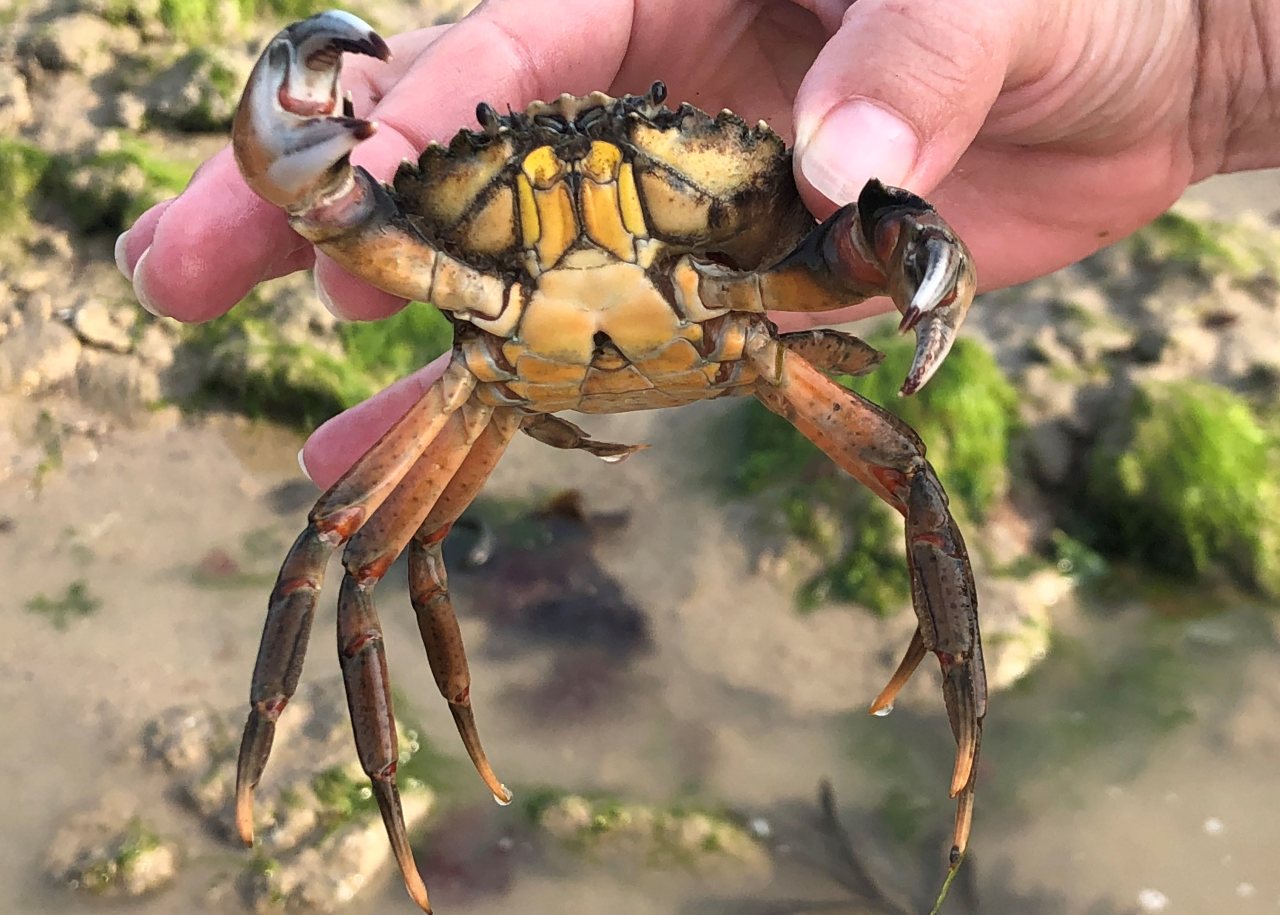
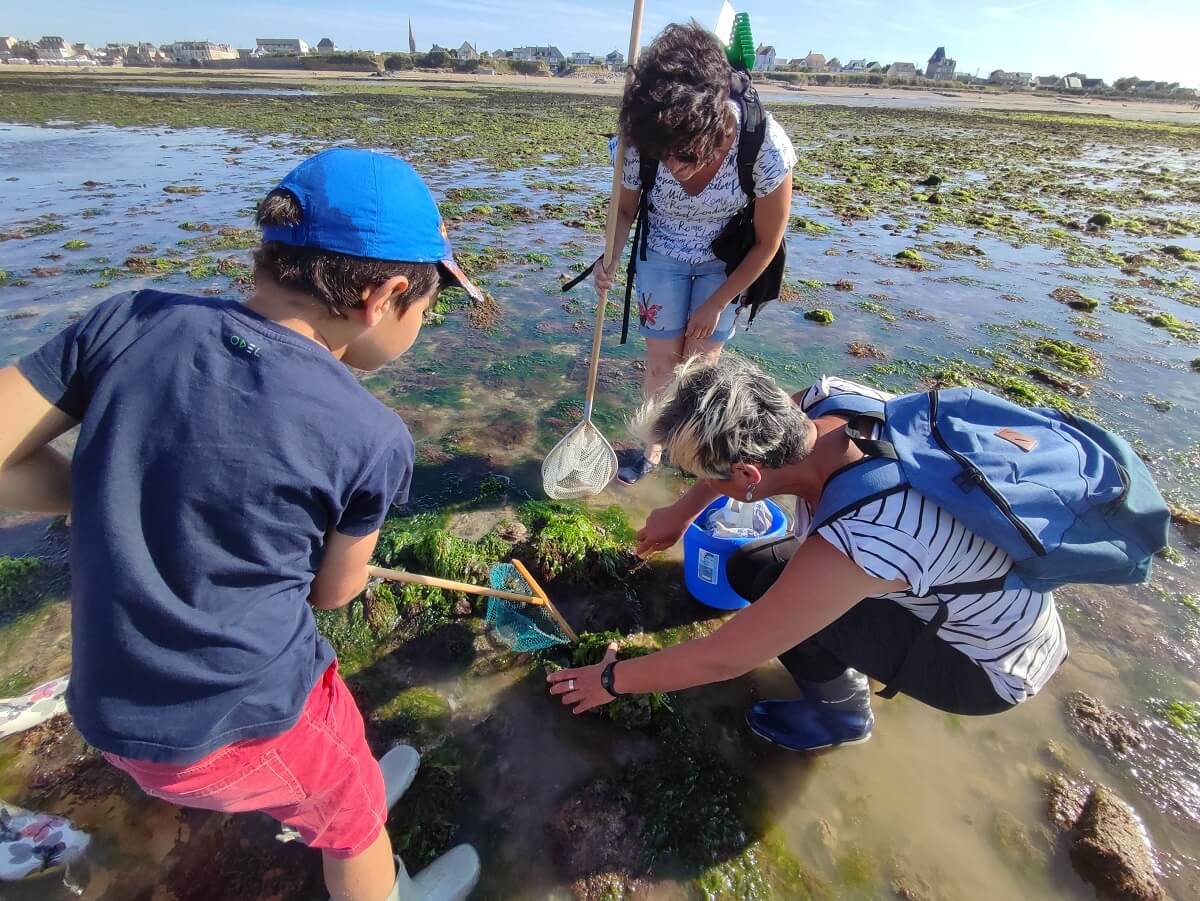
For SHELLFISH (razor clams*, clams, cockles, winkles…), choose Courseulles-sur-Mer, Hermanville-sur-Mer or Colleville-Montgomery where the beaches are sandy.
Each person can collect up to 5kg of shellfish, whatever the species concerned, while respecting the minimum size of the catch.
The rocks of Calvados located between Bernières-sur-Mer and Lion-sur-Mer are well supplied with CRUSTACES (curlers, bouquets, grey shrimps, crabs…).
The fishing of shellfish is permanently authorised on the Calvados coast.
However, bouquet fishing is closed from 1 March to 30 June inclusive. It is also absolutely necessary to respect the sizes for a sustainable and responsible fishing !
For MUSSELS, choose the Pointe du Siège in Ouistreham. Collection is authorised from Monday to Saturday and every day on the rest of the Côte de Nacre, except for a temporary ban for health reasons.
A little tip on how to fish for razor clams with salt
Gastronomy of the sea
It is impossible to imagine a stay on the Normandy coast without tasting fresh fish and seafood !
Mussels, crab, lobsters, spiders, sea bass, sea bream, turbot… Visit the Courseulles-sur-Mer fish market every morning to fill up on iodized flavours.
And to share a seafood platter in front of the beach, consult our list of Cœur de Nacre restaurants.
To note in your diary :
- From 1st October marks the start of the scallop season,
- At the end of November, come to Courseulles-sur-Mer to enjoy the shell festival.
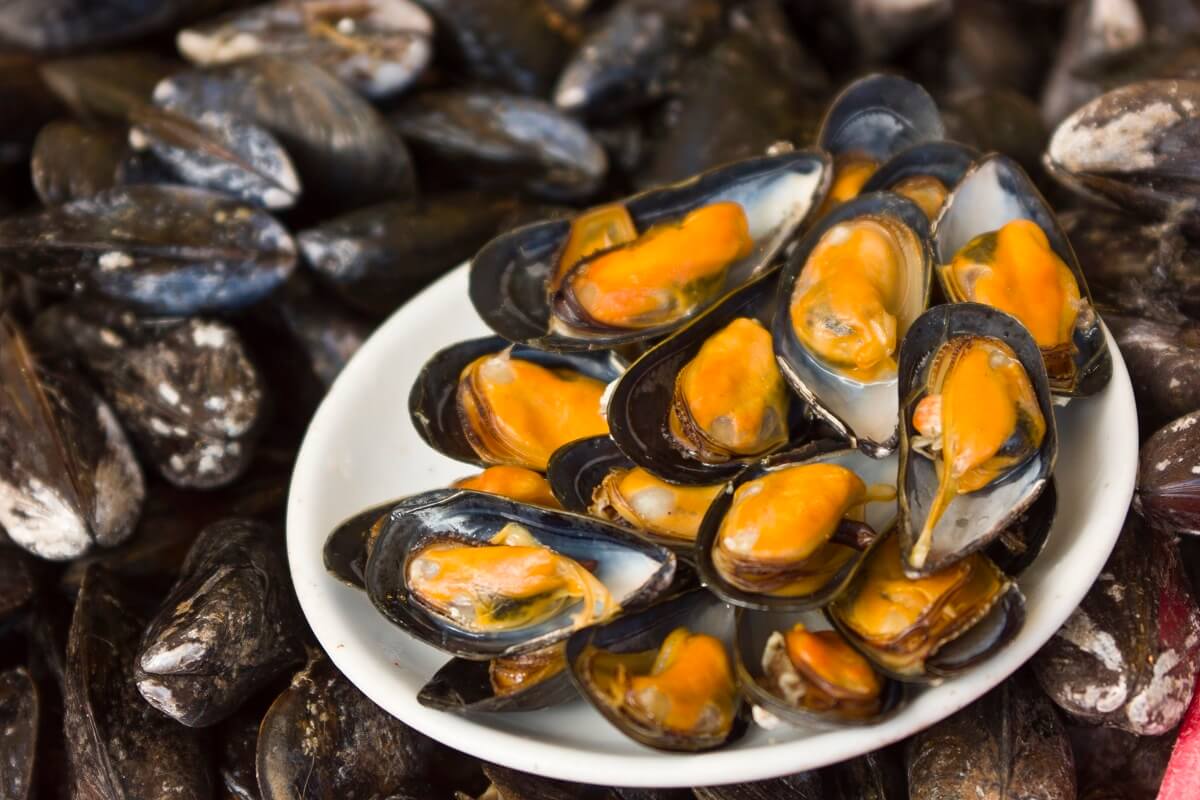
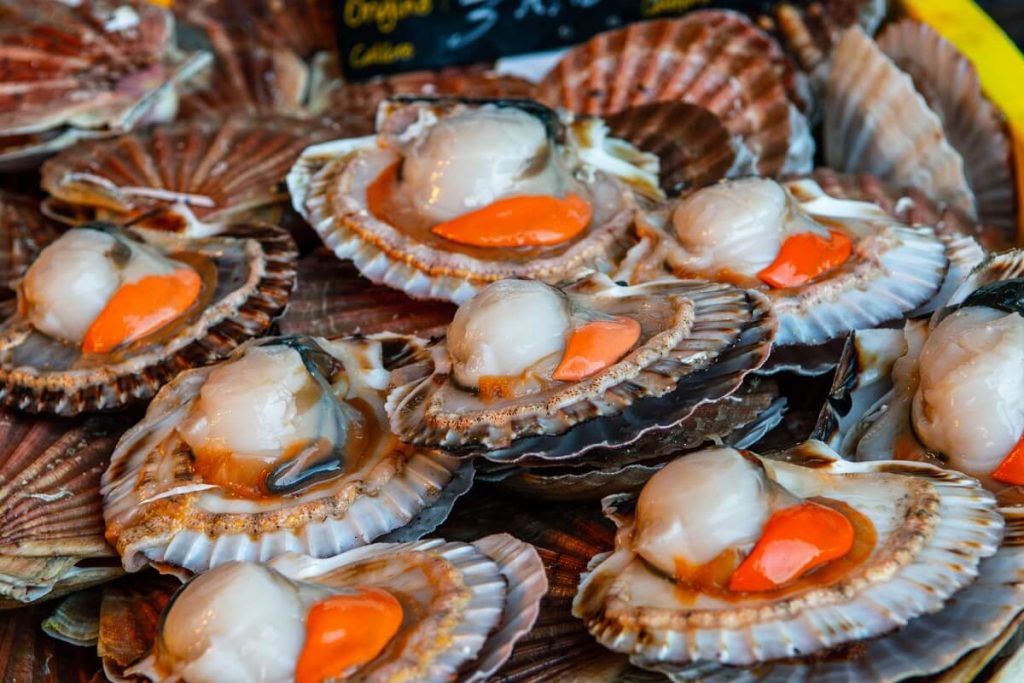
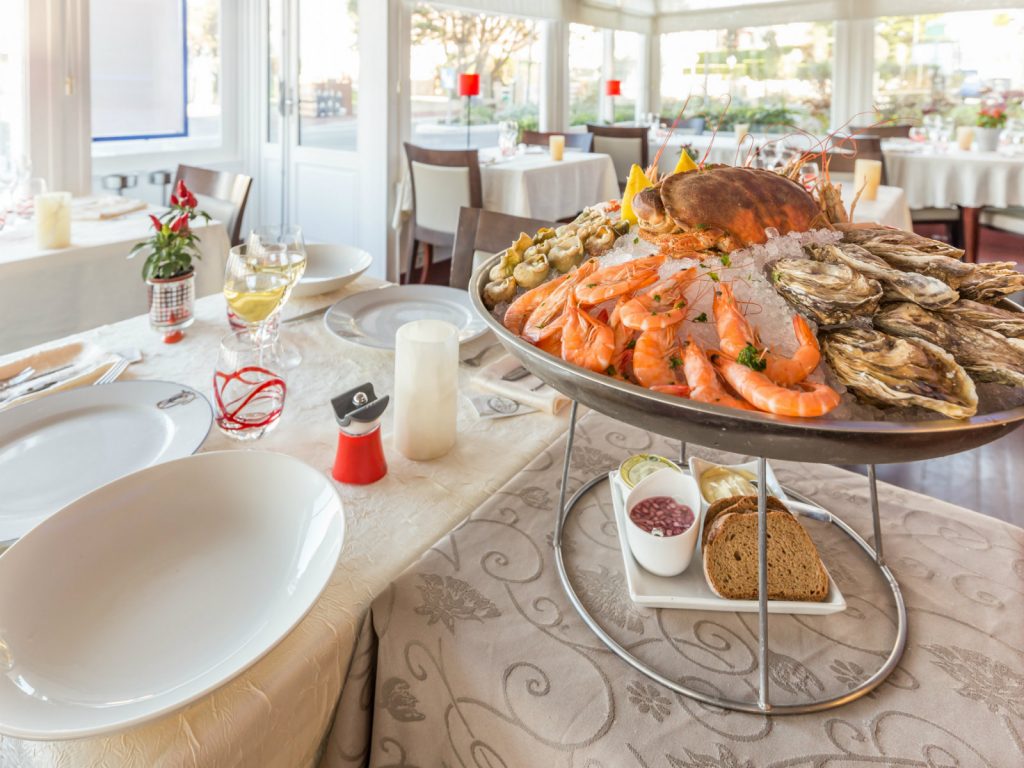
Credits : Andrea Bischoff Leica, Sébastien Delanoé, Hôtel de Paris
Do you know the Courseulles oyster ?
Since 1950, the Benoist family has been breeding this oyster on the table in Asnelles.
It is then matured in clear water in the basins located just beside Juno Beach, in Courseulles-sur-Mer.
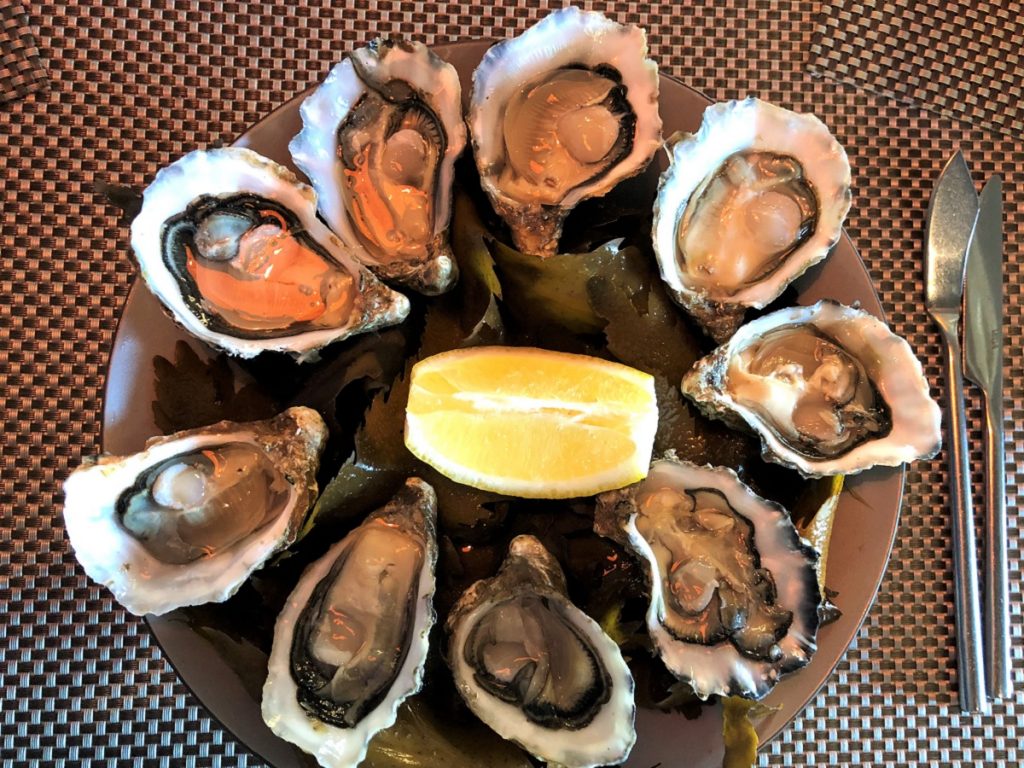
Let’s go for Thrills and fresh air
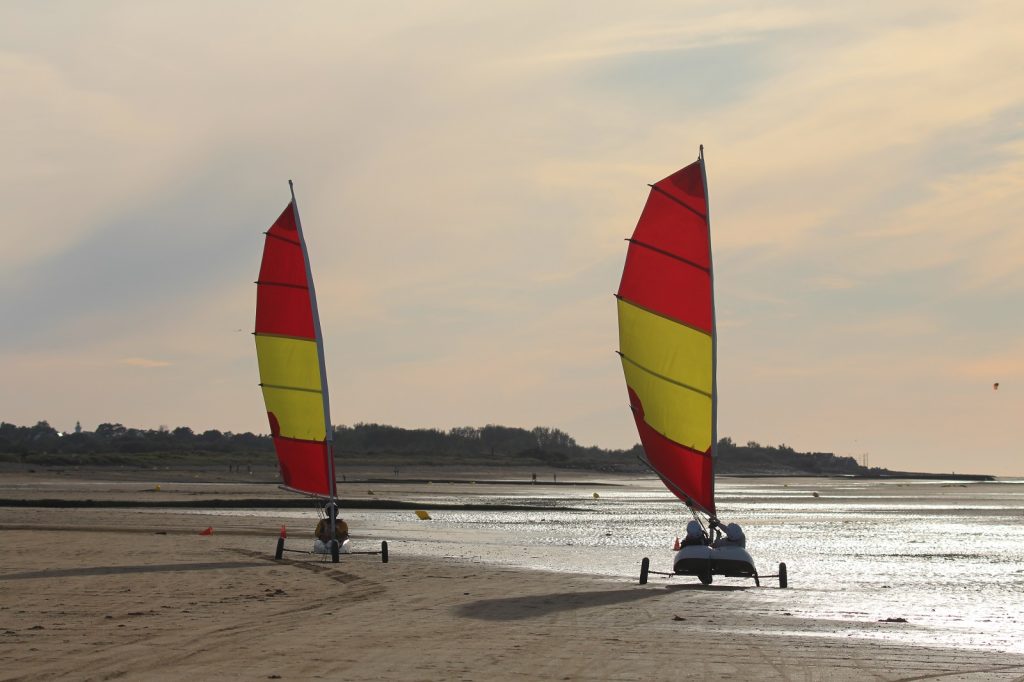
Pssssssst !
When the tide gives way to this large expanse of sand, the favourite activity of the “sailors” is sand yachting.
In summer and winter alike, this water sport combines technique and thrills.
The Courseulles-sur-Mer sailing school offers first flights of sand yachts for children and adults.
Sorties pêche à pied et découverte de l’estran
LUC-SUR-MER
Introduction to catamaran sailing, children sailing, children sailing courses, dinghy sailing and windsurfing.
Do you need help?
Tourist brochures, search for accommodation, choice of a restaurant adapted to your desires, search for a leisure activity?
We are at your disposal to help you prepare your visit to the Cœur de Nacre.
